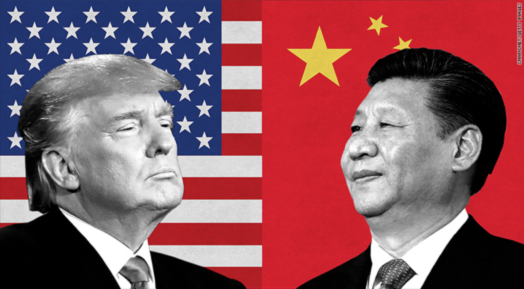By: Nicholas Feloney
The U.S. Government is currently investigating China’s trade practices after reports that it has stolen roughly $1.2 trillion worth of American intellectual property rights (IPR). This should not come as surprise; 87% of counterfeited goods seized by U.S. Customs and Border Patrol in 2016 came directly from China.
This past August, President Trump exercised his “Section 301” power pursuant to the Trade Act of 1974 by authorizing current U.S. Trade Representative Robert Lightizer to conduct a formal probe into China’s alleged theft of $600 billion from the U.S. economy last year. It will be decided at the conclusion of Lightizer’s investigation whether the U.S. will sanction Chinese trade. Critics say the move was President Trump’s way to pressure an otherwise unwilling Chinese government to police North Korea’s nuclear program. But the issue of American IP theft today is nothing new and poses very real danger to the health and longevity of our Nation’s economy.
American multi-nationals are leading the charge. Any foreign company wishing to penetrate China’s market must do so as a Chinese-majority held entity. With that comes full-disclosure of the foreign firm’s inventions to the Chinese partner. This means that Chinese researchers gain an unfair advantage by being able to quickly create competitive inventions at a fraction of the cost. China also does not enforce foreign IPR as it is required to do under TRIPS. Instead the country accuses the U.S. of pursuing “protectionsism”, but there is no requirement here for Chinese firms to transfer technology to majority-owned American partners.
High-tech research and development is America’s greatest competitive advantage. IP protection is critical for businesses to maintain competitive advantages and increase profitability. IP-intensive firms operating domestically contributed roughly $7 trillion in commerce and supplied 35% of our jobs in 2015. They carry a tremendous multiplier effect too, whereby one U.S. high-tech job indirectly creates five additional jobs in the local economy. This is not an industry that our nation can afford to lose, having already lost manufacturing.
Beginning with the earliest IPR talks with China in the late 70’s, China has never taken the U.S. seriously about enforcing IP rights. The Trump Administration made the right move issuing this investigation and putting America first.
Student Bio: Nicholas Feloney is a 2L student at Suffolk University Law School. He is currently a Staff Member of The Journal of High Technology Law. Nicholas holds a B.S in Business Management & Finance from Providence College.
Disclaimer: The views expressed in this blog are the views of the author alone and do not represent the views of JHTL or Suffolk University Law School.

